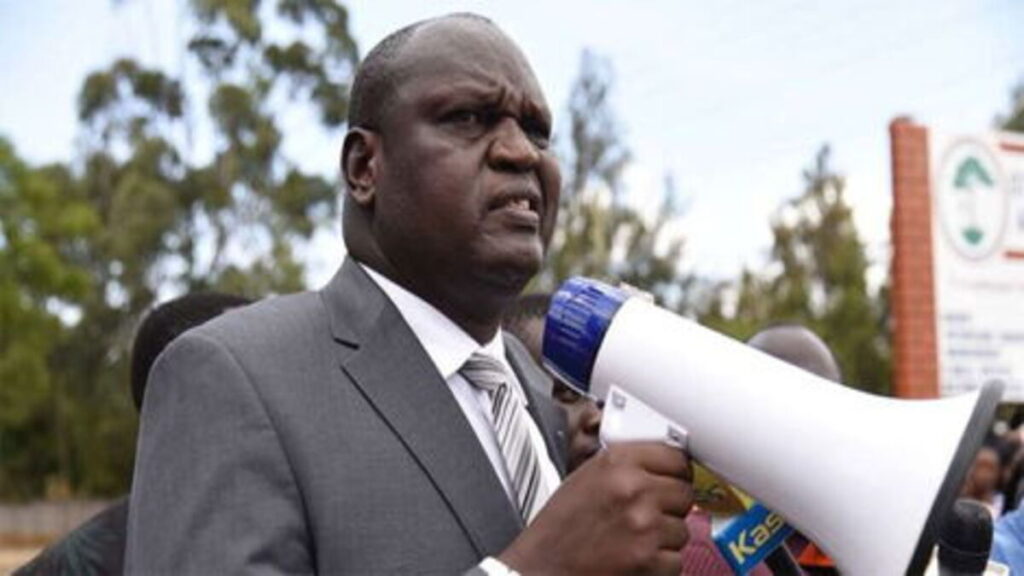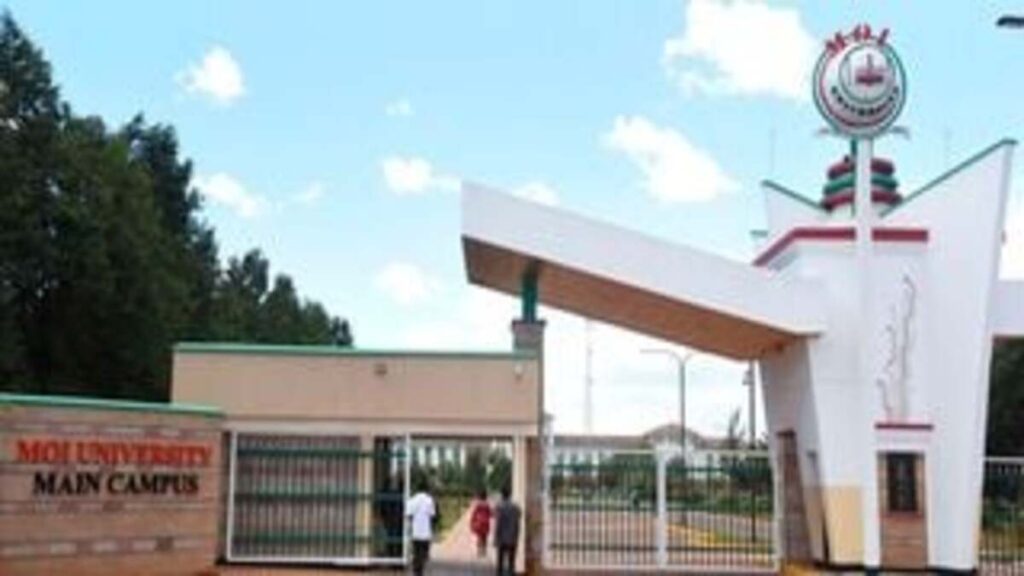Moi University is in turmoil as the Ethics and Anti-Corruption Commission (EACC) summons Vice-Chancellor Professor Isaac Kosgey. The VC faces allegations of misappropriating Ksh 2.2 billion through fraudulent infrastructural projects. This investigation highlights the university’s severe financial troubles.

The EACC’s summons comes amid ongoing financial instability at Moi University. The institution has debts exceeding Ksh 20 billion, including Ksh 12 billion owed to striking lecturers. The situation has worsened to the point of technical insolvency, with liabilities surpassing assets.

Moi University Main campus: photo courtesy
The investigation focuses on Kosgey and three other senior officials. They are accused of obstructing investigations and failing to provide essential documents. EACC spokesperson Eric Ngumbi stated that Kosgey must appear for questioning on November 20, 2024.
Financial woes at Moi University are not new. In recent months, Members of Parliament have called for urgent government intervention to save the institution. The National Assembly’s education committee revealed that the university’s wage bill is an unsustainable 88% of its total revenue.
Committee chairman Julius Melly noted that financial challenges began in 1991. These issues worsened with the establishment of over nine other universities in Kenya. This expansion depleted Moi University’s critical infrastructure and resources.
As a result, the university has sought Ksh 315 million in monthly support for two years. It also requests a one-time bailout of Ksh 2.4 billion to clear outstanding debts. Additionally, Moi University plans to raise Ksh 700 million by selling some properties.
However, MPs are concerned about the sustainability of these measures. In October 2024, the National Treasury disbursed Ksh 609 million to Moi University. An additional Ksh 500 million is expected shortly to help manage finances.
A caretaker committee will be established to strengthen management during this recovery phase. The financial mismanagement at Moi University has drawn attention from various quarters. The Public Investment Committee on Education has ordered a forensic audit of the institution’s finances over the past five years.
Auditor-General Nancy Gathungu will review these financial dealings. She is expected to submit her report within 60 days. The audit will cover unpaid salaries and unremitted pension contributions amounting to Ksh 4 billion.
Education Cabinet Secretary Julius Ogamba confirmed that staff strikes were triggered by non-payment of salaries. Failure to implement collective bargaining agreements also contributed to these strikes.
During a recent parliamentary session, it was revealed that Moi University spent Ksh 29.8 million on constructing a gate despite its financial situation. This expenditure raised eyebrows and highlighted ongoing concerns about fund management within the institution.
In light of these revelations, MPs have directed that all new projects at Moi University be suspended until the audit is completed. The university is also prohibited from hiring new staff during this period.
As investigations continue, there are calls for accountability among university officials. The EACC’s probe aims to uncover any corruption or unethical practices contributing to the university’s financial decline.
The situation at Moi University serves as a cautionary tale for public institutions in Kenya facing similar challenges. With mounting debts and allegations of graft, it remains uncertain how the university will navigate this crisis.
The future of Moi University hangs in the balance as it seeks both financial support and institutional reform. Stakeholders hope thorough investigations will lead to accountability and restore confidence in this once-prestigious institution.
As this story develops, it underscores the importance of transparency and ethical governance in educational institutions across Kenya.

















